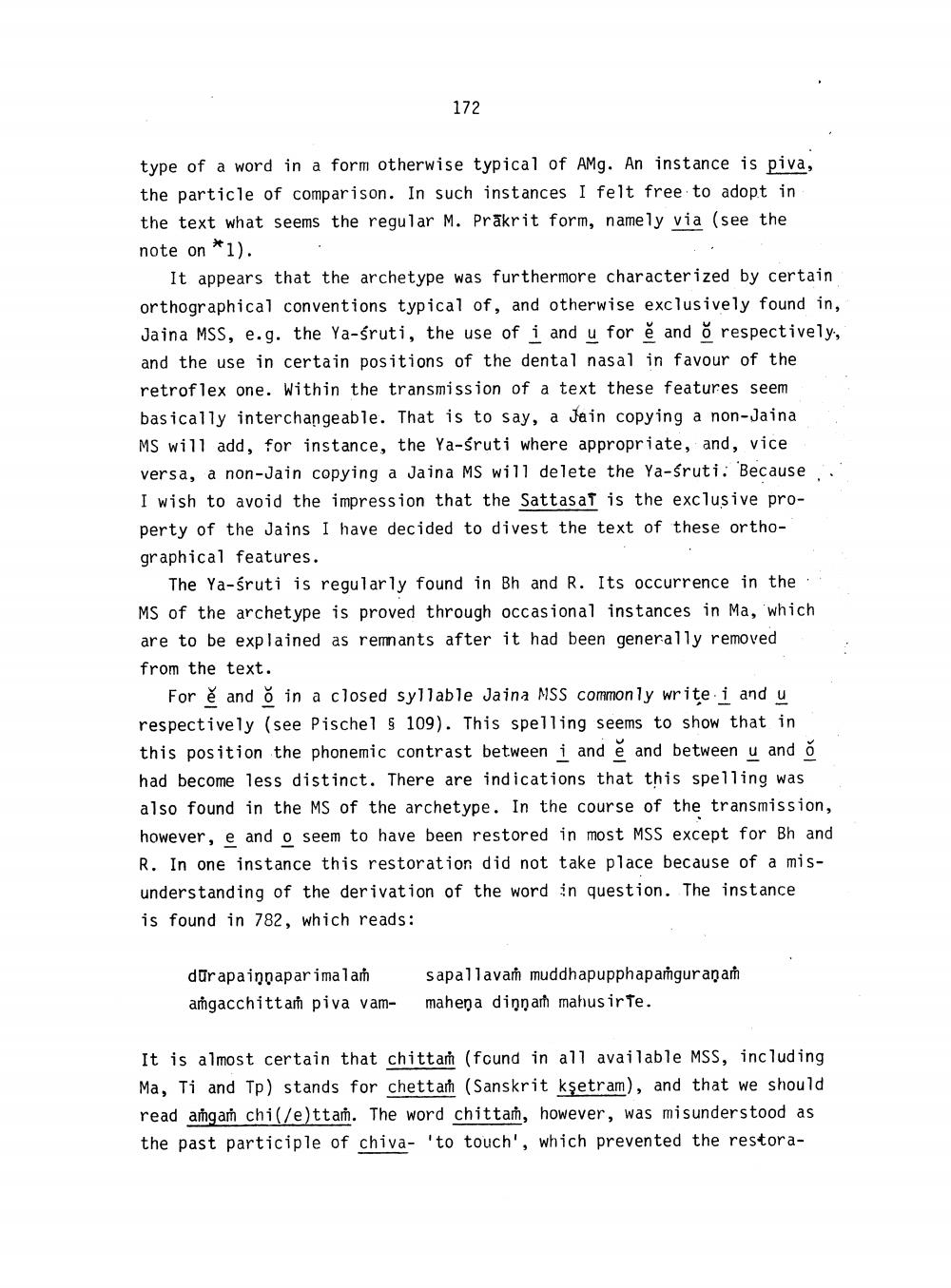________________
172
type of a word in a form otherwise typical of AMg. An instance is piva, the particle of comparison. In such instances I felt free to adopt in the text what seems the regular M. Prākrit form, namely via (see the note on *1).
It appears that the archetype was furthermore characterized by certain orthographical conventions typical of, and otherwise exclusively found in, Jaina MSS, e.g. the Ya-śruti, the use of i and u for ě and ŏ respectively, and the use in certain positions of the dental nasal in favour of the retroflex one. Within the transmission of a text these features seem basically interchangeable. That is to say, a Jain copying a non-Jaina MS will add, for instance, the Ya-śruti where appropriate, and, vice versa, a non-Jain copying a Jaina MS will delete the Ya-śruti: 'Because I wish to avoid the impression that the Sattasat is the exclusive property of the Jains I have decided to divest the text of these orthographical features.
The Ya-śruti is regularly found in Bh and R. Its occurrence in the MS of the archetype is proved through occasional instances in Ma, which are to be explained as remnants after it had been generally removed from the text.
For ě and © in a closed syllable Jaina MSS commonly write i and u respectively (see Pischel & 109). This spelling seems to show that in this position the phonemic contrast between i and ě and between u and o had become less distinct. There are indications that this spelling was also found in the MS of the archetype. In the course of the transmission, however, e and seem to have been restored in most MSS except for Bh and R. In one instance this restoration did not take place because of a misunderstanding of the derivation of the word in question. The instance is found in 782, which reads:
durapainpapar imala angacchitt a piva vam-
sapallava muddhapupphapaṁguranan mahena di na mahusirTe.
It is almost certain that chittań (found in all available Mss, including Ma, Ti and Tp) stands for chetta (Sanskrit kşetram), and that we should read agań chic/e)ttam. The word chittañ, however, was misunderstood as the past participle of chiva- 'to touch', which prevented the restora




